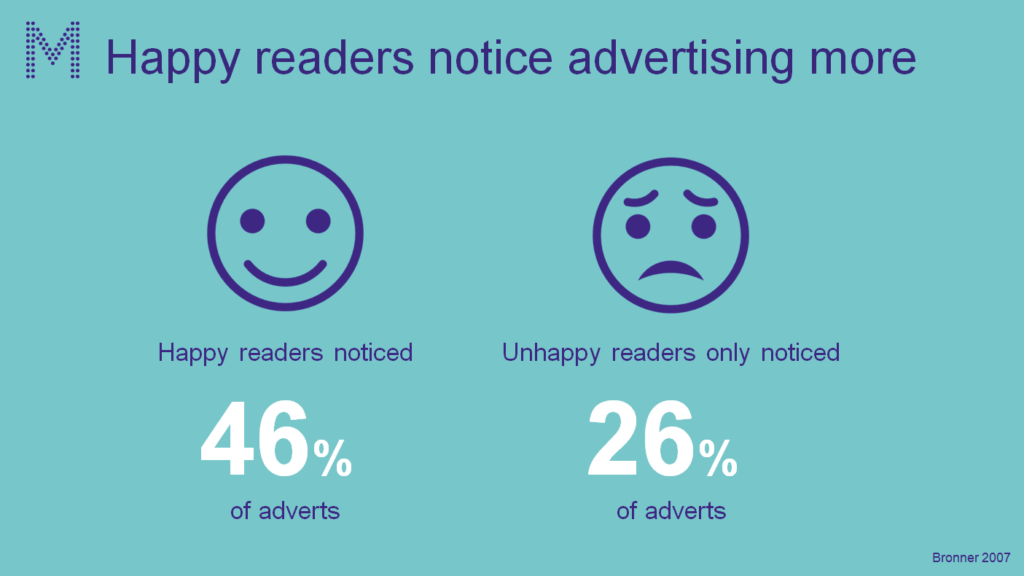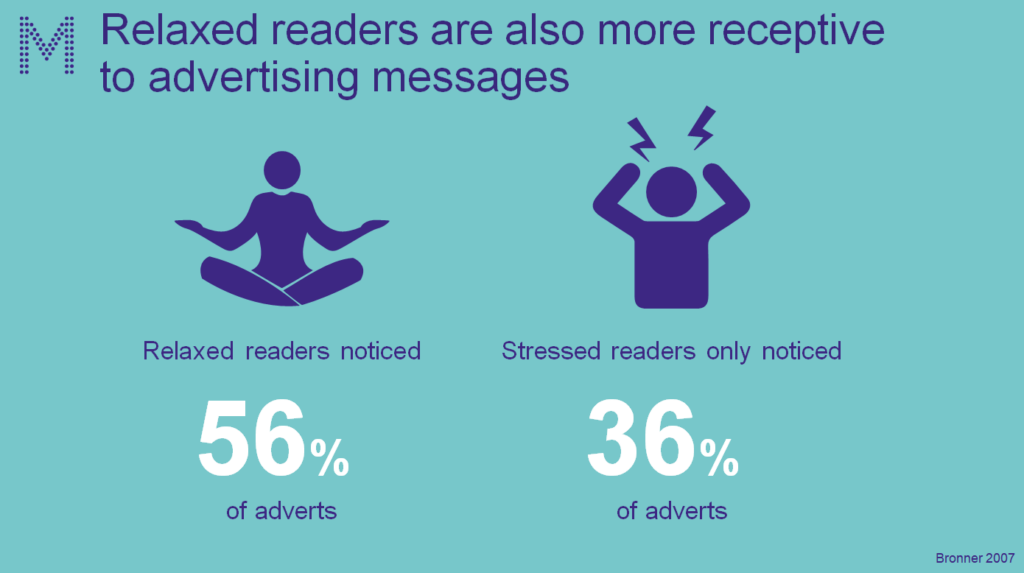If you’re anything like me, your mindset has been careening lately; concern, gratitude, anxiety, hope … instead of asking “how are you” the real question should be “where’s your head at?”
This puts brands in a tricky spot … how do we continue to marketing and send out ad messages when our audience’s mindset it all over the place?
“Mood is an important commercial consideration as it affects how an audience interacts with ads: if advertisers reach a happy or relaxed audience their ads are far more likely to be noticed,” writes media pundit Richard Shotton in Magnetic.
Shotton points to Fred Bonner’s insightful 2007 study, in which 1,287 participants were asked to flip through a newspaper, then answer questions about the ads they briefly saw.
“When the data was split by the readers’ mood, Bronner noticed a striking pattern,” Shotton continues. “Those who were happy recalled 46% of ads, whereas those who were unhappy noticed just 26%. It wasn’t just happiness that mattered, levels of stress were important too. Relaxed participants noticed 56% of ads, whereas those who were stressed remembered a mere 36%.”

It wasn’t just recall either; the study noted that when people are relaxed they are more receptive to brand messaging.

Other research backs this up, including Shotton’s own study a few years back and another one from Hearst and Theobald’s Road Consulting that found similar results. When we are relaxed and happy, we notice brand messaging and we like it more. Shotton explains there’s a biological reason why.
“For most of our history being in a good mood has signaled an absence of danger, which mitigates against a need to think critically,” he explains. “So, it shouldn’t be surprising that people in a good mood are more open to commercial messaging.”
Understanding this human trait is critical now as we all face uncertainty and unfamiliar stresses. Be the brand that leverages positive and relaxing vibes by:
- Using your creativity to cheer up your readers; be light, be a little silly and get a little smile out of them.
- Advertise in print; studies have shown that our human brain is more receptive to messages in print.
- Advertise in print magazines in particular; they offer that lean-back relaxing experience that leaves our readers open to receive the message. And they are already the most liked of all media ads, so your uphill battle to engage just flattened out quite a bit.
- If you’re going to advertise on digital, be vigilant about placement. Is your ad appearing next to disturbing content and troubling information? Your brand could suffer simply by association.
- Stay helpful, stay positive and aim to help and even inspire.
“Even the tiniest bit of positivity could fleetingly change people’s ratings of their life,” Shotton continues. “As Winston Churchill said, ‘A joke is a serious thing.’”
